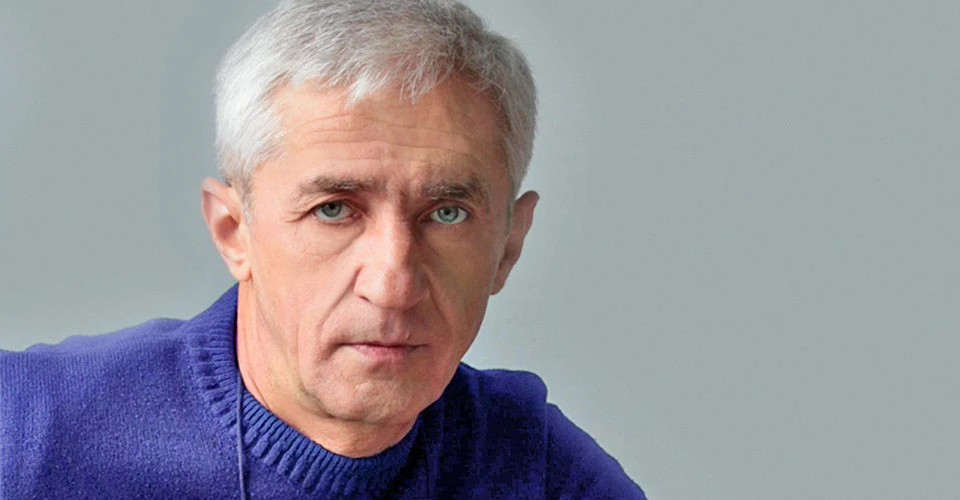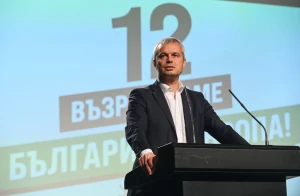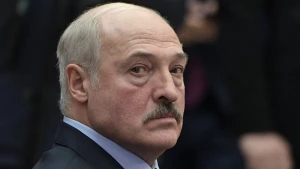
Weird Georgian dream
After Tbilisi's demonstrative refusal to help Ukraine in our resistance to Moscow, Salome Zourabichvili's claim about the return of South Ossetia and Abkhazia looks ultra-cynical
A few days ago, Ukraine was outraged by the statement of Georgian President Salome Zourabichvili. She believes that as part of a peace agreement following the war in Ukraine, Russia should give back the occupied South Ossetia and Abkhazia to Sakartvelo. Frankly speaking, after Tbilisi's demonstrative refusal to help Ukraine in our resistance to Moscow, Ms. Salome's claim looks ultra-cynical. So much so that both National Security and Defense Council Secretary Danilov and President Zelenskyy reacted to it. Danilov accused the Georgian leader of double standards, saying that “on the one hand, they want to regain their land with our blood, and on the other hand, they mock our citizens.” I'll leave out the reference to Mikheil Saakashvili in this commentary, as I think it's a completely different story. But as for the intention to “pull chestnuts out of the fire” with someone's hands, I fully agree with the reaction of our high-ranking officials.
“After Tbilisi's demonstrative refusal to help Ukraine in our resistance to Moscow, Salome Zourabichvili's claim looks ultra-cynical.”
I am fully aware of the level of Zourabichvili's powers (Georgia is a parliamentary republic) in the situation when the majority in the legislative body of the country belongs to the party of her opponent - pro-Russian (perhaps the word "Russian" would be even more appropriate here) oligarch Bidzina Ivanishvili's Kartuli Ocneba - Demokratiuli Sakartvelo (Georgian Dream - Democratic Georgia). And the trajectory of official Tbilisi's behavior in Russia's war against Ukraine was probably determined not so much there as in other offices - much further north…
However, if we go back to August 2008, when the occupying Russian forces were 20 miles from the capital of Sakartvelo, the position of Ukraine, whose President Viktor Yushchenko, along with other foreign leaders, came to the Caucasus to demonstrate solidarity with Georgians, is very revealing. It is true that Yushchenko was in the same role as Zourabichvili today, as the government at the time was headed by Yulia Tymoshenko. Nevertheless, according to Saakashvili's recollections, Kyiv provided Tbilisi with Buk and Osa missile systems, and Georgian soldiers used them to shoot down 12 enemy aircraft. By the way, when Ukraine asked for its own Buk missiles, Georgia... refused.
“Kyiv provided Tbilisi with Buk and Osa missile systems, and Georgian soldiers used them to shoot down 12 enemy aircraft. By the way, when Ukraine asked for its own Buk missiles, Georgia... refused.”
It is clear that if the world had been able to unite against Putin's empire 14 years ago, Russia would have curbed its appetites, and perhaps the invasion of February 24, 2022, would not have taken place.
But history does not recognize categories of "if only...". However, this capricious lady often reminds us of our old lessons, and in a completely unexpected way.
In 1917, when the Bolsheviks took power in Russia, tens of thousands of Russians fled to Ukraine in the face of the Red Terror. Volodymyr Vynnychenko, in particular, mentioned this in his The Revival of the Nation. He wrote about the tsunami of "Moscow garbage" that literally flooded Ukraine. How it ended is well known. The creation of the fake 'Ukrainian SSR' and its 'government' in Kharkiv, and the defeat of the first national liberation struggle…
After Putin, having suffered his first defeats in Ukraine, was forced to declare 'partial mobilization' (in fact, even before that), tens of thousands of Russians fled the 'imperial Titanic' en masse. And among the most popular countries for 'forced emigration' was Georgia.
Salome Zourabichvili was clearly too late with her conclusion that "Russia needs to know where its borders are." As it turned out, Putin's thesis of a 'borderless' empire was realized, first of all, in this Caucasian country.
“After Putin, having suffered his first defeats in Ukraine, was forced to declare 'partial mobilization' (in fact, even before that), tens of thousands of Russians fled the 'imperial Titanic' en masse. And among the most popular countries for 'forced emigration' was Georgia.”
And Zourabichvili is not just appealing to the international community, belatedly seeking to fit into the 'Ukrainian game'. A recent survey by CRRC Georgia commissioned by NDI showed results that are very symptomatic of an 'open Sakartvelo'. Georgians were asked about their attitudes toward newcomers from the north. Almost 70% of them are concerned about the massive arrival of Russians in the country and fear the negative consequences of this (the same number are convinced that a visa regime should be introduced for "dubious neighbors"), and the majority (57%) consider the Georgian authorities' policy on this issue unacceptable.
Therefore, it is likely that the Georgian president should talk not only about the de facto occupied South Ossetia and Abkhazia, but also about the fact that the "creeping occupation" has spread throughout the country. And there is no hope that it will "dissolve" in the near future. On the contrary, as long as Moscow keeps the mobilization window ajar, Georgia will face new attacks on the migration front. As a result, the uninvited guests, having adapted and gotten along with the Russians' inherent 'tact', will begin to demand special preferences and treatment. And "Putin please come!" calls from the "borderless Russian world" will go in a circle in one way or another.
If this is how politicians in Tbilisi see the future of their country, then you must admit that their Georgian dream is weird.
About the author. Ihor Hulyk, journalist, Editor-in-Chief of the Espreso.West website.
The editors do not always share the opinions expressed by the authors of the blogs.
- News














































